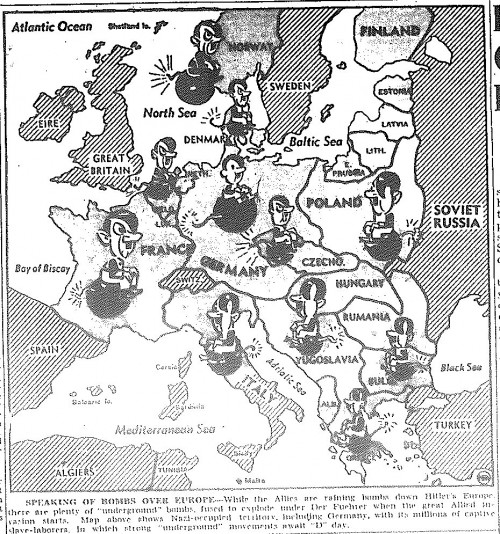Screaming Monsters and Sordid Gays: Ian Bogost’s Alien Phenomenology
I was really looking forward to reading Ian Bogost’s philosophy book, Alien Phenomenology, or What It’s Like to Be a Thing. Two girls who I absolutely admire — one who writes criticism about Thoreau, one who writes plays about Louis Braille — placed praise upon the book, and I was prepared to do similarly.
Ian’s book is bound to object-oriented ontology, a philosophy that posits that “nothing has special status, but that everything exists equally — plumbers, cotton, bonobos, DVDs.” For Ian, the world is composed of units, where “something is always something else.” Humans, the stars of so many philosophies, can neither be separated nor elevated above other things because those things are a part of them and they are a part of those things. While Kant (a bland German boy), Heidegger (a curious Nazi boy), and others put people on a peerless pedestal, Ian puts them in messy dot where millions of encounters occur at once. As Ian explains:
On August 10, 1973, at a boathouse in Southwest Houston, the shovel of a police forensics investigator struck the femur of one of the seventeen corpses excavated that week, victims of serial killer Dean Corll.
The boathouse, the shovel, the police boy, the serial killer — each is a unit, and each unit leads to other units. The serial killer boy probably possessed a mommy and daddy, and his mommy and daddy are units who are entwined with more units. Object-oriented ontology suggests the unceasing character of the Nazis, who were invariably inserting themselves into more land, lives, and histories. Units are all over, and, during World War Two, so were the Nazis.
But not all of object-oriented ontology can be compared to screaming monsters who slaughtered six million you-know-whos and five million ummms. Some of Ian’s philosophy aligns with utterly unpleasant people, like Walt Whitman and Allen Ginsberg. Each of these canonized homosexuals has a penchant for lists. Whitman enumerates his electrified body parts while Ginsberg tells of the objects that have transfixed his tushy. For Ian, “Lists remind us that no matter how fluidly a system may operate, its members nevertheless remain utterly isolated, mutual aliens.” Whitman-Ginsberg types show this shared separateness in a most sordid way. Queer theorist Tim Dean details how homosexuals disclose the inevitable objectification of s-e-x. Disputing Andrea Dworkin’s belief that porn “dehumanizes those whom it fetishizes,” Dean says that all s-e-x, not just the porn kind, “fragments and particularizes.” Such fragmentation is disgustingly displayed in the gay community, whose members, according to Dean, BJ boys through holes in the wall, then spit the c-u-m into a container, which is then funneled into other boys’ tushies.
A Lot — Basically All — Gay People are Normal and Don’t Deserve Any Special Attention Whatsoever
 Queer Eye for the Straight Guy and Newlyweds were kind of popular shows on the telly when I came to the conclusion that if I were to ever do that disgusting activity that you should probably never do it would be with a boy.
Queer Eye for the Straight Guy and Newlyweds were kind of popular shows on the telly when I came to the conclusion that if I were to ever do that disgusting activity that you should probably never do it would be with a boy.
Sometimes, while flipping through the trillions of telly channels, I would stop on Queer Eye. The snippets that I saw of the “queer eyes” turned and twisted my tummy terribly. They had lots of product in their hair, wore insufferably strange trousers, and, just in general, looked as if they had spent the last gazillion hours scrubbing themselves in a shower stall. All these boys seemed to care about was their bodies. They didn’t watch PG movies or collect teddy bears or commit French poetry to memory. Their primary concern was the appearance of their flesh as well as the flesh of the straight guys that they were making over.
Straight people are just as corporeal as gays. Nick Lachey is a straight boy. He sort of has massive muscles and wears product in his hair. Whenever I saw Nick on the Newlyweds, I said to myself, “I do not want to be like this boy. I want to be like Jessica!” Jessica was quirky and inquisitive. She was thoughtful about that which she interacted with. She asked questions, like why a tuna fish company would name themselves Chicken of the Sea. Nick seemed unable and unwilling to string sentences together. But Jessica was a cute chatterbox, like Anne Frank when she was in school.

